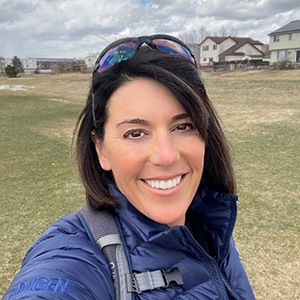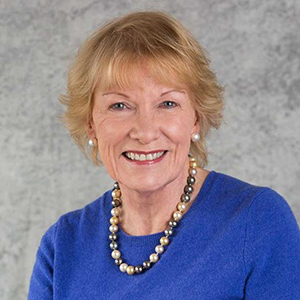
COVER STORY – By Kat Cirone and Joy Van Skiver
Sales leaders eagerly contribute to the training
 Right from the start of Amgen’s global sales coaching initiative focusing on field coaching reports(FCRs), sales leaders were eager to contribute to the success. Regional sales directors (RSDs) wanted to attend the initial training program, knowing their presence would encourage district managers (DMs) to value the training much more. They also felt it was important to understand what their DMs were learning so they could provide appropriate reinforcement.
Right from the start of Amgen’s global sales coaching initiative focusing on field coaching reports(FCRs), sales leaders were eager to contribute to the success. Regional sales directors (RSDs) wanted to attend the initial training program, knowing their presence would encourage district managers (DMs) to value the training much more. They also felt it was important to understand what their DMs were learning so they could provide appropriate reinforcement.
That eagerness in 2021 continued through follow up into 2022 and 2023 with a targeted coach-the-coach effort specifically focused on FCRs. Now it’s continuing into 2024 with ongoing individual and team support.
A Comprehensive Approach
At Amgen, one of the world’s largest biotech companies, the commercial organization includes close to 1,500 people leaders. The sales coaching initiative has extended to every business unit in the United States as well as several large global affiliates.
More than 40 certified trainers have facilitated the core program, created by The POWERformance Group. Course materials were translated into eight languages: Spanish, Portuguese, Chinese Simplified and Traditional, French, German, Italian and Japanese.
More than 200 DMs and 30 RSDs have participated in the initiative so far. Timing for participation varied depending on priorities within each unit. The project was not intended to be underway in all business units at once. Staggering schedules allowed for careful attention devoted to each unit. For example, strategy-building sessions with RSDs and one-to-ones with executive directors zeroed in on concerns for each team.
Something that grabbed the interest of leaders from the get-go was the emphasis on measurement and sustainment. That’s something Amgen’s Commercial Learning and Performance team has been working on in the past few years.
Coach the Coach and Sustainment
As Amgen continues to measure success by conducting impact studies, coaching the coach appears to be a major influencing factor. The intent of each impact study is to quantify as much as possible, using three critical evaluation points over a one-year time period: baseline assessment, personalized coaching review and progress assessment.
Seven sales coaching principles that serve as the foundation of the training makeup most of the 11 criteria evaluated. In four business units where the impact studies are complete, growth was evident from baseline to progress, but more significant is the sustainment level of the learning.
Leveraging a coaching language is a central part of the training. DMs learn to use word prompts to create meaningful coaching comments. Every impact study tallies the number of prompts each manager is using.
The entire training team helped get everyone off to a great start after the baseline with the growth from 25% to 84% for the principles and from a score from 3 to 7 for the word prompts.
Surveys and Assessments
To align with the goal of ensuring that the training be something they do with people and not to people, surveys and assessments were on the agenda at the start of the initiative. Evaluation was the prime objective, of course, but part of the plan was to keep sales leaders motivated to support FCR improvement.
- Pre-Training Survey
Sales specialists are asked how they feel about the FCRs they receive, and DMs are asked their perspective of the FCRs they create. The results are shared with DMs and sales leaders. - Baseline Assessment
This assessment based on one FCR from each DM provides valuable information that’s shared with sales leaders and DMs. RSDs make this a matter of discussion before the training occurs. Because the assessment includes excerpts from the DM’s reports, everyone can see what they’re already doing well, and they’re motivated to strengthen their reports. - Personalized Coaching Reviews
As follow-up to two training sessions separated by one month or more, every DM receives a personalized coaching review of two FCRs. This gives each DM an understanding of what they’re doing well and what they can do to keep improving. It also gives RSDs practical material to use in one-to-ones focused on coaching. - Progress Assessment
One year after the initial training, a progress assessment provides not just feedback on each unit’s growth in the quality of FCRs, but also feedback for ongoing coach-the-coach efforts. - Impact Studies
Numbers indicating success are satisfying for everyone involved, and that’s the major objective. As a side benefit, these studies also provide more coach-the-coach material. RSDs receive individual impact study profiles for each DM, showing whether or not the DM met each of the 11 criteria at each of the three critical evaluation points. Every RSD knows which DMs still need coaching and what that coaching needs to center on. - Post-Study Survey
This survey compares the results of the initial survey before the training. In the four business units where this survey is complete, most specialists say they find FCRs helpful at least 80% of the time. DMs report that more specialists are implementing the coaching they receive. DMs are also finding that FCRs take less time to write.
Just as with other efforts in the initiative, the survey results are shared with all sales leaders as well as DMs. Teams are discussing the results, not just seeing the results.
How Coach the Coach Grew
Although the training team already had built in coach-the-coach elements at the start of the initiative, efforts grew with a request from one of the first business units to participate. One sales leader asked if a “deep dive” would be possible for each of their regions. He wanted to provide more detailed coaching guidance for all RSDs so they could fine-tune their coaching on FCRs.
That “deep dive” quickly became standard procedure because RSDs found it so helpful. In each progress assessment, the DMs are divided into three groups depending on what criteria their latest FCRs meet: role models, performers and learners. Regional coach-the-coach “prescriptions” give RSDs follow-up suggestions that vary based on each manager’s areas for continued improvement. As a foundation, RSDs are encouraged to use the two reports each DM submitted for the personalized coaching review and the one report submitted for the progress assessment.
Behind the detailed learning plan for every DM is an important reality check about what RSDs know and what they don’t know. They all recognize what good coaching is when they see it, and they certainly know when coaching comments just don’t measure up. But they don’t always have the right words to express what a DM is missing or precisely what a DM needs to do. The “want to” is there, but the “how to” isn’t intuitive.
Even before the progress assessment with regional recommendations, RSDs receive practical job aids that literally give them the words to use when talking about reports.
Conclusion
To guarantee success with FCRs, it makes sense for training teams to coach the coach’s coach. When RSDs have the tools to support them as they guide and direct DMs, they’re more than willing to contribute their own expertise and their time. That’s paying off at Amgen where FCRs reflect high-quality coaching that inspires, motivates and drives growth.
Practical FCRs have become the norm at Amgen. DMs understand their reports play an important role. They realize that specialists remember what they hear when they also see it in print. That recognition impacts face-to-face coaching as well: What works in print also works in person.

 Kat Cirone is senior training manager, leadership development, at Amgen. Email her at kcirone@amgen.com or connect through linkedin.com/in/kcirone. Joy Van Skiver is president of The POWERformance Group. Email her at joy.vanskiver@powerformance.com or connect through linkedin.com/in/joyvanskiver.
Kat Cirone is senior training manager, leadership development, at Amgen. Email her at kcirone@amgen.com or connect through linkedin.com/in/kcirone. Joy Van Skiver is president of The POWERformance Group. Email her at joy.vanskiver@powerformance.com or connect through linkedin.com/in/joyvanskiver.








